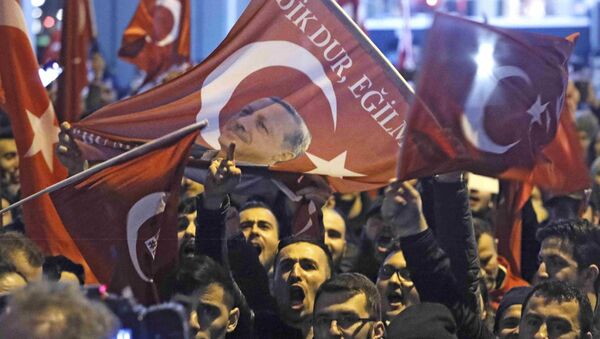"I don't really believe that there is a great chance for an EU ban on Turkish rallies because this will [go against] all the established values and rights guaranteed under the European Convention on Human Rights and also weaken the EU under the Charter of Fundamental Rights, such as freedom of expression and freedom of peaceful assembly," she explained. "This will lead to further diplomatic tensions and again it will contradict the basis of international law."
Turkish President Recep Tayyip Erdogan and his supporters have staged rallies at home and abroad in a bid to convince voters to back proposed amendments to the constitution designed to grant sweeping powers to the presidency. Several European countries cancelled some of these events or prevented Turkish officials from delivering campaign speeches, much to Ankara's discontent.
Over the weekend Turkish Foreign Minister Mevlut Cavusoglu and Family Minister Fatma Betul Sayan Kaya were not allowed to address Turkish voters in the Netherlands, prompting Erdogan to accuse the Dutch of being "cowards, remnants of Nazis" and "fascists."
On Monday, Ankara said it will challenge the Netherlands in the European Court of Human Rights over its refusal to allow Turkish officials to enter the country and take part in the rallies. "Actually there are great chances that such a lawsuit could be brought before the European Court of Human Rights," Dr. Bulak said.
The expert further said that the European Union should serve as a mediator to help Turkey and the Netherlands resolve the issue.
The EU should send "a strong message to the member states that they violated the Vienna Convention on Diplomatic Relations and the Vienna Convention on Consular Relations, as well as other fundamental human rights and the obligations arising from the European Convention on Human Rights," she added.
Have you heard the news? Sign up to our Telegram channel and we'll keep you up to speed!



